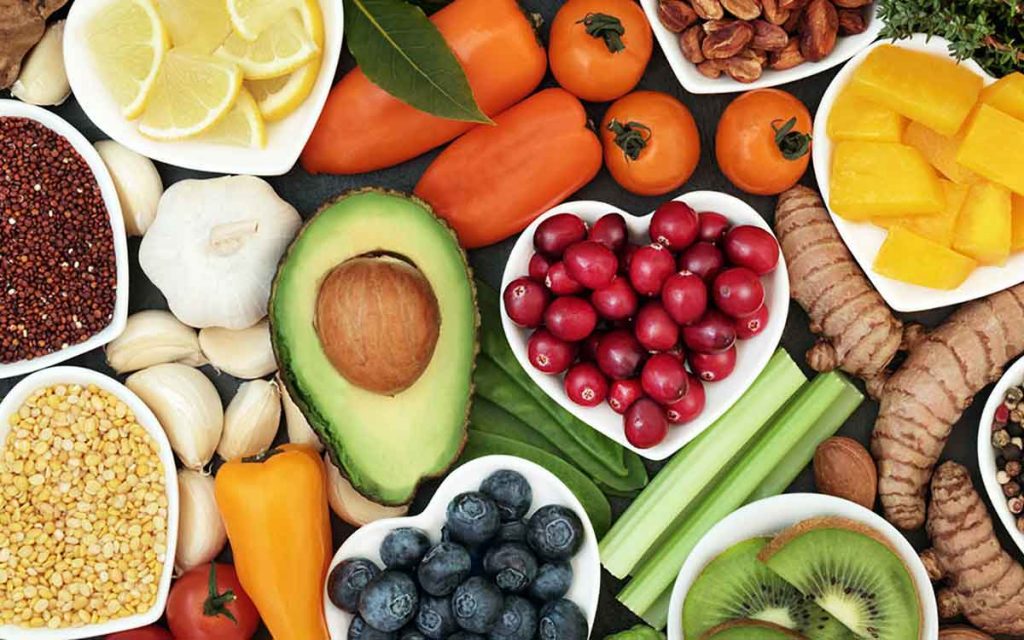A 2010 study administered in southern Nepal, where hearing loss among young people is common, studied more than 2,000 individuals between 16 and 23. Those found to be experiencing hearing loss overwhelmingly came from undernourished households where food was scarce when they were children. The study found certain nutrients were essential to maintaining healthy hearing.
Without eating various foods, participants in the study were missing the broad spectrum of nutrition necessary to maintain a healthy diet.
You can’t go back in time and eat your vegetables after learning about this study, but chances are you still have access to healthy foods. You can reduce your risk of hearing loss and maintain your current level of hearing by making some minor modifications to your diet.
Nutrients and healthy hearing
A group of scientists studied how diet impacts a person’s ability to retain their hearing as they age. They took into account environmental and behavioral differences that could skew the outcomes.
The study lasted 22 years with more than 70,000 participants, making it one of the largest and most significant studies in history.
The study found that individuals who consumed the following nutrients maintained their healthy hearing and had a lower risk of hearing loss.
Potassium
Potassium is a salt and an electrolyte. Your body needs it to help regulate fluids. The liver uses potassium to dispose of the toxins in your system.
Potassium is found in:
- apricots
- bananas
- melons
- oranges
- spinach
Try to eat fruits that are raw and whole, minus the inedible parts, of course. Dried fruit and juice still contain potassium, but they’re also very high in sugar, which you should consume in moderation.
The study found individuals with ample potassium in their diets reduced the risk of noise-induced hearing loss. This type of hearing loss is closely associated with aging.
Folate
Folate is a B vitamin. Your body uses folate to support your DNA, the code that tells your body what cells to create. Without folate, cells can’t divide to make new, healthy cells.
You’ll find folate in:
- black-eyed peas
- Brussels sprouts
- romaine lettuce
- spinach
- asparagus
- liver
- avocados
Folate is also added to certain morning cereals. Getting it from whole foods like those listed above is a better choice, however.
The study found folate slowed the progression of hearing loss. So if you’re already experiencing symptoms, increasing folate in your diet can help prevent further hearing loss.
B12
The study found that a B12 deficiency was closely linked to hearing loss. B12 is important for energy production, as well as healthy nerve and blood cells.
The best sources of B12 are fermented foods, including:
- kimchi
- sauerkraut
- pickled vegetables (but not the kind soaked in vinegar)
- kombucha
- yogurt
- kefir
You can also get B12 by eating seaweed, which is common in some cultures. If you’re not a vegetarian, you can get B12 from eating red meat.
Vitamins C and E
Vitamins C and E are antioxidants. Vitamin C promotes healing and protects the body from harm. Vitamin E fights free radicals which harm cells. Both vitamins are essential for maintaining healthy blood flow and nerve health in your inner ears.
Common sources for vitamins C and E include:
- papaya
- kiwi
- broccoli
- bell peppers
Vitamin D
Vitamin D is essential for overall health. Most people aren’t getting enough of it.
Researchers believe vitamin D helps strengthen the tiny bones in the inner ears, which improves the way they function.
The best place to get vitamin D is from the sun. Your body makes vitamin D when you’re exposed to sunlight, but don’t overdo it. Too much sun damages the skin, leading to premature aging and even cancer.
It isn’t easy to get enough vitamin D from food sources, but it is available in:
- mushrooms that grow in sunlight (not the white ones)
- lichen, which is a green lacy looking plant that grows on dead trees
- algae
If these aren’t viable options, you may need to take vitamin D supplements.
Alpha-lipoic acid
This nutrient protects your hearing from free-radical damage. It supports a healthy nervous system, which includes your hearing.
ALA also boosts the mitochondria in the tiny hair cells in your ears that pick up sounds. One mitochondrion is found in each cell. They produce the energy cells need to function properly.
You can get alpha-lipoic acid from:
- broccoli
- spinach
- sweet potatoes
Eat this, not that to maintain your hearing
Nutrition plays an important role in hearing health. Unlike other parts of your body, the inner ears’ tiny hair cells can’t grow back if damaged or destroyed. Even short-term deficiencies can cause permanent hearing loss, as evidenced in the Nepal study.
If you’re experiencing hearing loss symptoms, get your hearing tested. Don’t wait! A hearing specialist can provide treatment options that will improve your hearing.
